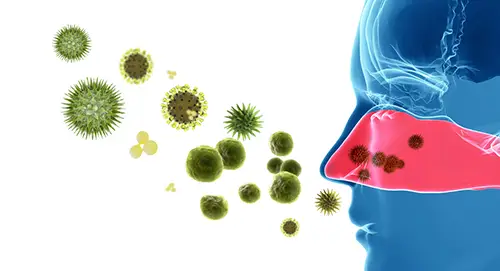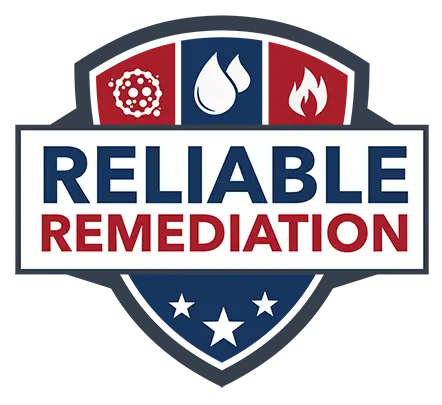Understanding How Doctors Treat Mold-Related Illness Differently & Choosing a Doctor that’s Right for You

Choosing between the two can depend on the patient’s specific health needs, preferences, and the type of care they are seeking
There are important distinctions that can be made between functional and traditional doctors and the kinds of medicine they practice. In some ways, the differences that separate these practices are philosophical ones: while traditional medicine is largely focused on treating acute medical problems (i.e. problems that arise suddenly, such as a broken bone or a rash), functional medicine is much more interested in the management of chronic conditions and the promotion of lifestyles and behaviors that support overall health.
Functional medicine practitioners are generally invested in figuring out the underlying causes behind disease. Rather than simply treating symptoms, as traditional medicine tends to do, functional medicine seeks to modify the cause so that disease is not triggered or allowed to flourish.
| Conventional Doctors | Functional Doctors | |
| Primary Focus | Symptom management and immediate relief | Root cause identification and holistic treatment |
| Diagnostic Tools | Standard medical tests (skin prick tests, blood tests) | Advanced and comprehensive testing (mycotoxin tests, detailed patient history) |
| Treatment Methods | Medications (antihistamines, corticosteroids), symptom management | Detoxification, dietary changes, supplements, holistic treatments |
| Environmental Control | Avoidance advice, professional mold remediation recommendations | Detailed environmental recommendations, indoor air quality improvements |

Choosing a Doctor to Assist You with Mold-Related Illness [5 Ways to Reduce the Risk ]
Finding a referral for a mold-related doctor can feel like a daunting task.
Here are some tips to assist you:
- Research Online
- Professional Directories:
- Use directories such as the American Academy of Environmental Medicine (AAEM) or the Institute for Functional Medicine (IFM) to find doctors specializing in mold-related illnesses and environmental medicine.
- Websites like Zocdoc or Healthgrades can help you find doctors and read reviews from other patients.
- Professional Associations:
- Look up associations such as the American College of Occupational and Environmental Medicine (ACOEM) or the International Society for Environmentally Acquired Illness (ISEAI) for member directories.
- Seek Recommendations
- Primary Care Physician: Start by asking your primary care doctor for a referral. They might know specialists in environmental or functional medicine.
- Friends and Family: Ask friends, family, or colleagues if they know any doctors who specialize in mold-related health issues.
- Support Groups and Forums: Join online communities or local support groups focused on mold-related health issues. Members often share recommendations for doctors.
- Utilize Social Media and Online Communities [5 Ways to Reduce the Risk of Mold ]
- Facebook Groups: Join groups related to mold illness or environmental health. Members often discuss their experiences with different doctors.
- Reddit: Subreddits like r/functionalmedicine or r/EnvironmentalHealth can provide recommendations and advice.
- Consult Alternative Health Practitioners
- Naturopaths and Functional Medicine Practitioners: These professionals often work with mold-related illnesses and may be able to refer you to a specialist.
- Integrative Health Clinics: Many clinics offer a range of specialists, including those who focus on environmental medicine.
- Contact Medical Schools and Hospitals
- University Hospitals: Contact the environmental health or occupational medicine departments at nearby medical schools or university hospitals. They often have specialists who deal with mold-related illnesses.
- Major Hospitals: Large hospitals often have specialized departments or can refer you to external specialists.

- Insurance Directory: Check your health insurance provider’s directory for covered specialists in environmental or functional medicine.
- Customer Service: Call your insurance company and ask for help finding a specialist who deals with mold-related health issues.
- Verify Credentials and Experience
- Board Certification: Ensure the doctor is board-certified in their specialty.
- Experience: Look for a doctor with extensive experience in treating mold-related illnesses. Check their background and patient reviews.
- Schedule a Consultation
- Initial Consultation: Book an initial consultation to discuss your symptoms and concerns. This meeting will help you assess whether the doctor is a good fit for your needs.
5 Ways to Reduce the Risk of Mold
You are not alone!
There are estimated to be at least 4.6 million asthma suffers that are caused by mold exposure (EPA). It is also estimated that at least 70% of homes have mold.
Finding a great doctor can help your body heal – finding a great remediation partner can heal your home.
We believe no one deserves to live in fear of their home making them sick – at Reliable Remediation we help people find peace of mind by restoring the health and safety of their home after water, fire, and mold damage. [5 Ways to Reduce the Risk of Mold ]



